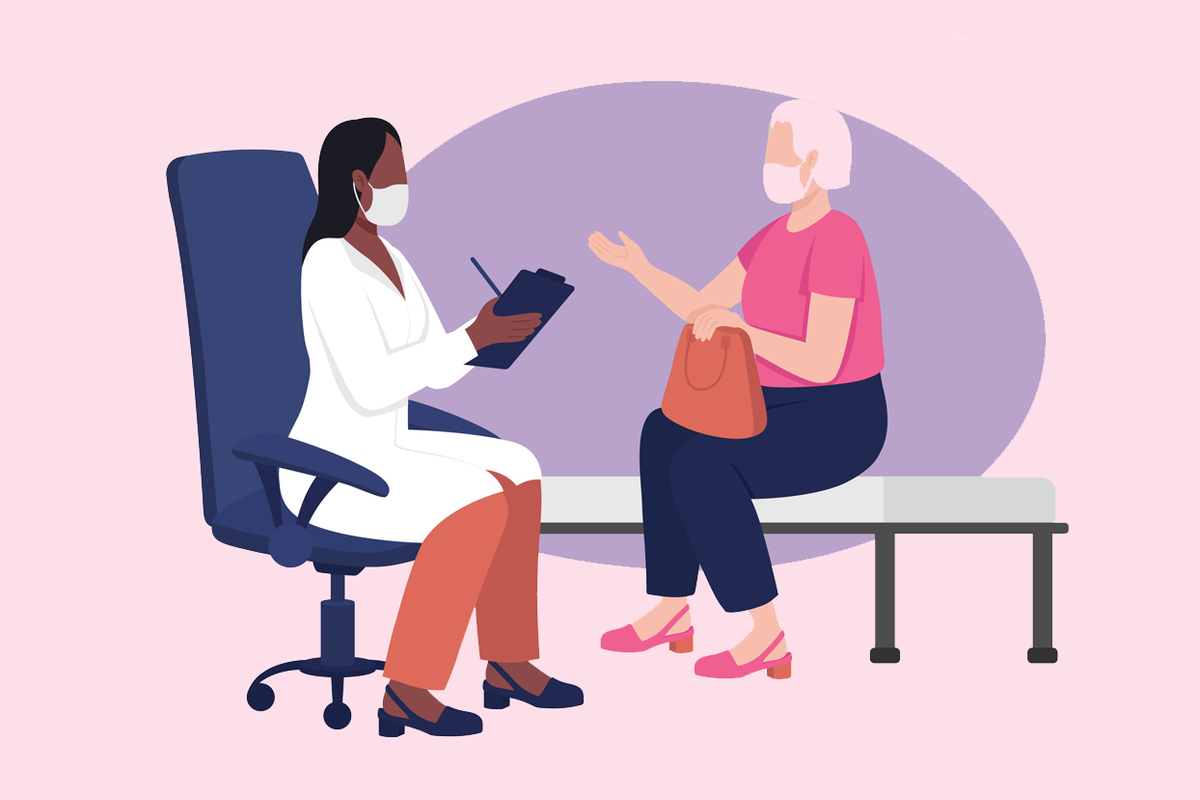
HIV and Older Women
Knowing your risk and getting an early diagnosis can save your life
Sep 27, 2021
Jul 19, 2023
Created With Support
Thaïs Diaz has a background in public health, nutrition and chronic disease prevention and works as a program coordinator for HealthyWomen. Her previous experience includes research and work at the University of Georgia focusing on the undergraduate population's food choices, nutrition, and overall health and well-being. During graduate school, she was a part of a research team that studied nutrition apps and how they're evolving in the public health sector. She also worked closely with a pediatrician on her upcoming book related to nutrition, sleep, exercise and family health. Thais focuses on health literacy and public health advice. She has volunteered with public health organizations that offer health education to Hispanic populations and translated for migrant farm workers as well as physicians.
She holds a bachelor of science degree in media and communication from Georgia Tech and a master of public health degree with a concentration in health promotion from the University of Georgia.
Full BioLearn about our editorial policies

Knowing your risk and getting an early diagnosis can save your life
Medically reviewed by Dr. Sharon Allison-Ottey
What is HIV?
HIV (human immunodeficiency virus) is a virus that attacks the body’s immune system. If HIV is not treated, it can lead to AIDS (acquired immunodeficiency syndrome).
As the population ages, more people above age 50 are living with HIV
In 2007, <10% of people living with HIV were over 50
In 2020, 60% of people living with HIV were over 50
In 2030, 73% of people living with HIV are expected to be over 50
Older women and risk for HIV
Older women who are sexually active with new partners may not realize they are at risk of HIV.
Factors that increase risk include:
Older women who inject drugs also are at risk of HIV from sharing needles and other drug equipment.
Delayed diagnosis means delayed treatment
The longer you have HIV, the more time there is for the virus to damage your immune system, which leads to a worse prognosis and possibly shorter survival after diagnosis.
In the U.S., older adults are more likely than younger adults to be diagnosed with HIV late in the course of their disease.
In 2015, 50% of people aged 55 and older had HIV for 4.5 years before they were diagnosed.
Possible reasons for late diagnoses
- Healthcare providers (HCPs) are less likely to discuss sexual behavior or drug use with older patients
- HCPs may not always test older people for HIV
- Older people may mistake HIV symptoms for signs of normal aging
- Older people may be embarrassed to discuss sex with their HCPs
Did you know: HIV medicine is called antiretroviral therapy (ART). ART works by reducing the amount of HIV in your body (viral load). If taken as prescribed, ART will reduce the amount of HIV in your blood, helping you stay healthy and reduce transmission to others.
What you can do
This educational resource was created with support from Merck.